UNITED NATIONS, Apr 27 (APP):The United nations High Commissioner for Human Rights Monday called on governments around the world to respect human rights during the coronavirus pandemic, saying there should be no violation of those rights “under the guise of exceptional or emergency measures.”
“Emergency powers should not be a weapon governments can wield to quash dissent, control the population, and even perpetuate their time in power,” Michele Bachelet, the rights chief, said in a statement issued in Geneva.
“They should be used to cope effectively with the pandemic – nothing more, nothing less.”
The high commissioner’s office has issued new policy guidance on the emergency measures because she said, “There have been numerous reports from different regions that police and other security forces have been using excessive, and at times lethal force to make people abide by lockdowns and curfews.”
“The abiding principle,” Ms. Bachelet said, is that the emergency measures must be “enforced humanely.” She added that if the rule of law is not upheld, “the public health emergency risks becoming a human rights disaster, with negative effects that will long outlast the pandemic itself.”
“Shooting, detaining, or abusing someone for breaking a curfew because they are desperately searching for food is clearly an unacceptable and unlawful response,” Ms. Bachelet said.
Almost all the countries in the world are under some kind of restrictive lockdown in an effort to halt the spread of the coronavirus. Nearly three million people around the world have been infected with the virus, according to the Johns Hopkins Coronavirus Resource Center. More than 206,000 people have died.
“In some countries, thousands have also been detained for curfew violations, a practice that is both unnecessary and unsafe. Jails and prisons are high risk environments, and states should focus on releasing whoever can be safely released, not detaining more people,” Ms. Bachelet said.
The guidance document stresses that, as in normal times, law enforcement officials should adhere to the principles of legality, necessity, proportionality and precaution.
“They should only use force when strictly necessary, and lethal force can only be used when there is an imminent risk to life,” she said.
“It is important to counter misinformation, but shutting down the free exchange of ideas and information not only violates rights, it undermines trust. False information about COVID-19 poses a huge risk to people. But so do bad policy decisions,” the High Commissioner said. “Undermining rights such as freedom of expression may do incalculable damage to the effort to contain COVID-19 and its pernicious socio-economic side-effects.”
The guidance sets out clearly that the measures should not only be necessary to achieve a legitimate public health objective, but that they should also be the “least intrusive” approach required to achieve that result.
“We have seen many States adopt justifiable, reasonable and time-limited measures. But there have also been deeply worrying cases where Governments appear to be using COVID-19 as a cover for human rights violations, further restricting fundamental freedoms and civic space, and undermining the rule of law,” Ms. Bachelet said.
Bachelet said that exceptional measures or a state of emergency should be subject to proper parliamentary, judicial and public oversight.
“Different countries are at different stages of the pandemic. Some are starting to come out of emergency measures, while others are extending or reinforcing them. The abiding principle must be that these measures are enforced humanely. Penalties for violating them should be proportionate, and not imposed in an arbitrary or discriminate way,” she added.
“Given the exceptional nature of the crisis, it is clear States need additional powers to cope. However, if the rule of law is not upheld, then the public health emergency risks becoming a human rights disaster, with negative effects that will long outlast the pandemic itself,” Ms. Bachelet said.




